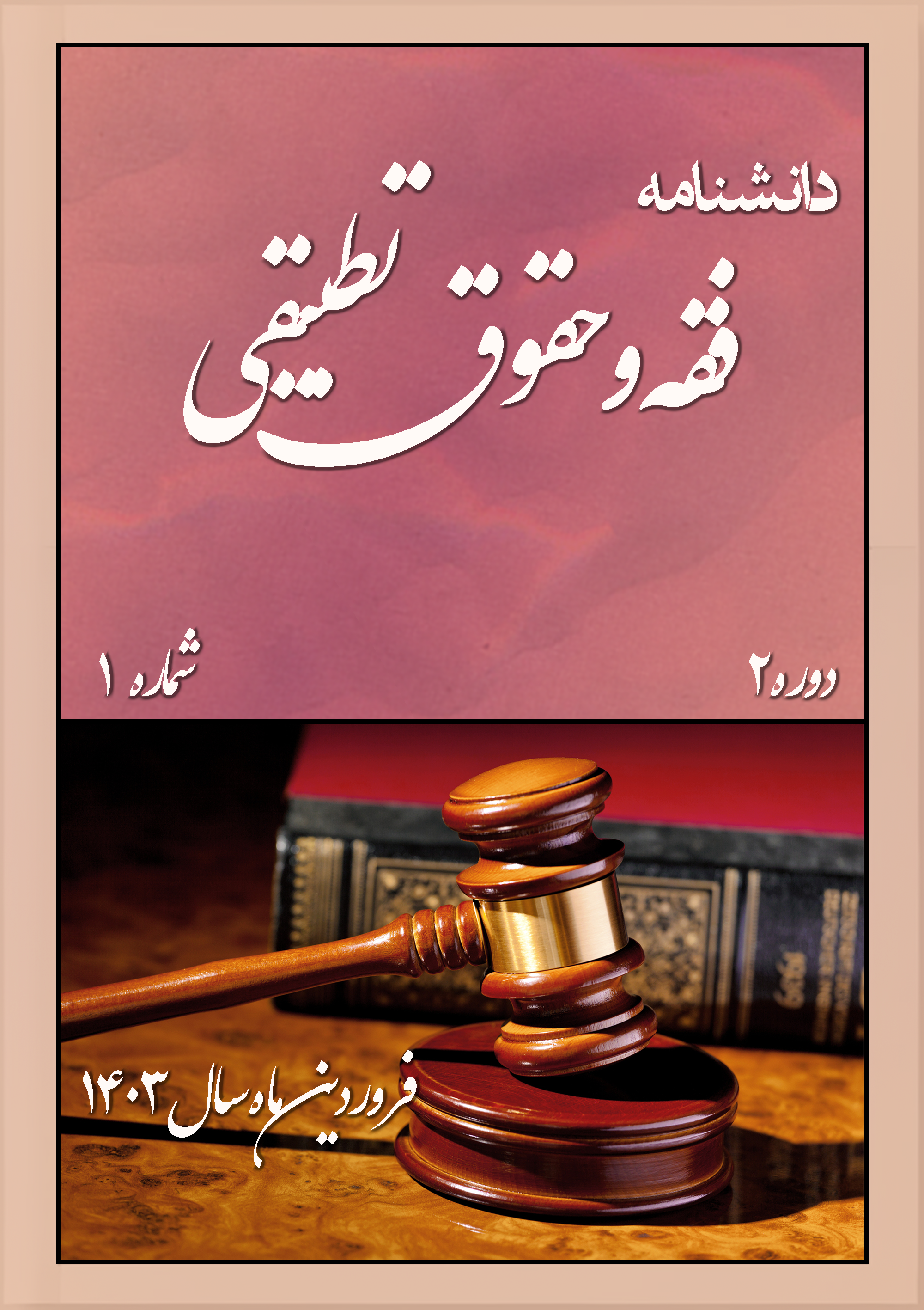A Study on the Fiqh Views on Intellectual Property Rights
Keywords:
Intellectual Property Rights, Fiqh, Intellectual Property, Intellectual Ownership, Economic RightsAbstract
Intellectual property rights have emerged as a critical topic in contemporary legal and jurisprudential discourse due to their economic and cultural significance. This article explores the fiqh perspectives on the legitimacy of these rights, analyzing arguments from both supporters and opponents. Supporters assert that these rights are valid based on principles such as the custom of reason, the principle of validity, the rule of priority, the rule of respecting others' property, the principle of non-harm, and the value of human labor outcomes. Opponents, however, challenge these rights by emphasizing the sanctity of knowledge, the prohibition of receiving wages for obligations, incompatibility with the rule of ownership, lack of legal recognition by the sharia, exclusion from the generality of "fulūd al-‘uqūd", and the non-proprietary nature of these rights. The article highlights the complexity of this issue, noting that while fiqh principles provide a foundation for the legitimacy of intellectual property rights, modern challenges require a comprehensive framework. It concludes by advocating for collaboration between jurists and legal scholars to establish laws that align with Islamic principles and address contemporary needs.
Downloads
References
Al-Hurr Al-Amili, M. b. H. (1989). Wasa’il al-Shi’a ila Tahsil Masa’il al-Shari’a (Vol. 23). Al-Bayt Foundation.
Al-Mousavi Al-Khomeini, R. (1999). Tahreer al-Wasila. Dar al-Elm Publications.
Al-Tusi, A. J. M. i. H. (2012). Tahdhib Al-Ahkam (Vol. 7). Dar Al-Kutub Al-Islamiyyah.
Bahjat, M. T. (2008). Fatwas (Vol. 4). Office of Ayatollah Bahjat.
Bamakan, S. M. H., Nezhadsistani, N., Bodaghi, O., & Qu, Q. (2021). A Decentralized Framework for Patents and Intellectual Property as NFT in Blockchain Networks. https://doi.org/10.21203/rs.3.rs-951089/v1
Davarpanah, A. (1978). Anwar al-Orfan fi Tafsir al-Quran (Vol. 9). Sadr Publications.
Fathi Zadeh, A. H. (1999). Islamic Jurisprudence and Intellectual Property. Yadgar Publications.
Ghanad, F. (2010). Protection of Intellectual Property in the Context of Electronic Transactions. Quarterly Journal of Islamic Law, 1(1), 170-200.
Haghighat, N. (2011). Criminal Protection of Intellectual Property Rights Islamic Azad University, Central Tehran Branch].
Hajidehabadi, M. A., & Alami Taameh, M. M. (2015). Crimes Against Intellectual Property in Iranian Laws and International Regulations. Islamic Law Journal (Jurisprudence and Law), 5(20).
Kulayni, M. B. Y. (1986). Al-Kafi. Tehran: Dar al-Kutub al-Islamiyyah.
Majlisi, M. B. (1982). Bihar al-Anwar. Beirut: Dar Ihya al-Turath al-Arabi.
Makarem Shirazi, N. (2006). Encyclopedia of Comparative Jurisprudence. Imam Ali Ibn Abi Talib School.
Marashi Shushtari, S. M. H. (2000). New Perspectives in Islamic Criminal Law (Vol. 2). Mizan Publications.
Milani, S. M., Amini, M., & Akefi, V. (2024). Failure of Contract Purpose in Islamic and Iranian Law: A Comparative Study with English Law. Journal of Islamic Law, 21.
Montazeri Najaf Abadi, H. A. (1988). Jurisprudential Foundations of Islamic Governance. Kayhan Institute.
Mostafavi, H. (1981). Al-Tahqiq fi Kalemat al-Quran al-Karim. Translation and Publishing Bureau.
Najafi, M. H. (1981). Jawahir al-Kalam fi Sharh Sharai' al-Islam (Vol. 40). Dar al-Ihya al-Turath al-Arabi.
Sadeghi Neshat, A. (2018). Legal Nature of Civil and Commercial Companies. Legal Encyclopedia(1), 235-245.
Sadr al-Muta'allihin, M. B. I. (1987). Tafsir al-Quran al-Karim (Sadr). Qom: Bidar Publishing.
Samani, E., & Fahimi, A. (2019). Comparative Study of the Conditions of Waqf Property and Trust Subject in Islamic and English Law. Islamic Jurisprudence Studies and Legal Foundations, 13(40), 149-174.
Shafaie, M. (1956). Rules of Jurisprudence. Naqsh-e-Jahan.
Shakouri Garkani, M. (2024). Analysis and pathology of the bill for the protection of intellectual property (literary and artistic) (material rights, moral rights, reproduction and translation of works, computer software, publishing contracts, customs measures and related sections). Monthly magazine of the Research Center of the Islamic Consultative Assembly(19712).
Zarei, F. (2021). Examination of the Right to Property from the Perspective of Iranian Jurisprudence and Law. 7th National Conference on Management Studies in Humanities.
Downloads
Published
Submitted
Revised
Accepted
Issue
Section
License
Copyright (c) 1403 Adel Kiomarsi , Mohammad Ali Kheyrollahi, Ali Faghihi (Author)

This work is licensed under a Creative Commons Attribution-NonCommercial 4.0 International License.










